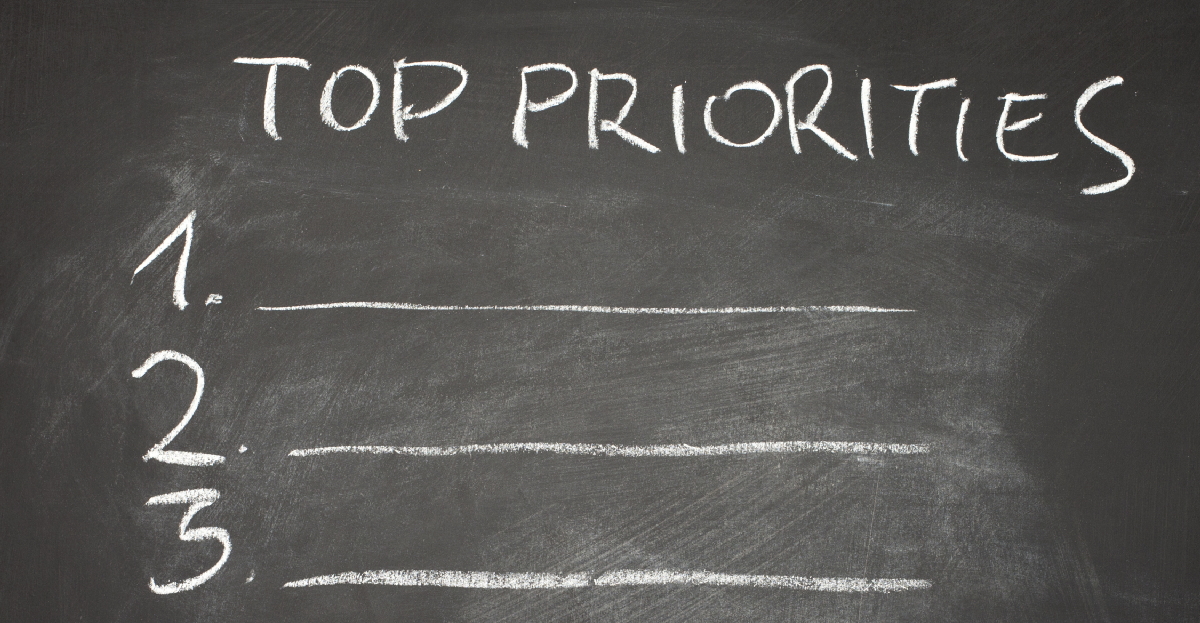2020 Priorities for Chief Learning and Chief Talent Officers

2020 is a nice round number, one that just rolls off the tongue. For years and even decades businesses and leaders have been drawn to it as a future destination, setting goals and plans to reach by that far-off time, often tweaking or completely re-writing them in the face of significant disruptions in the here and now. That future destination is coming into clear focus, as 2020 is finally upon us.
The over two-dozen members of i4cp’s Chief Learning and Talent Officer (CLTO) Board represent a diverse group of industries, including retail, biotech, banking, aerospace, and others. The organizations vary in other ways as well, including age, history of M&A, current growth trajectories, and so on. So not surprisingly, when we recently asked these leaders what the top three priorities that their function must deliver on to enable their business/organization to achieve its strategic imperatives in 2020, we received a wide range of responses. There are also some interesting commonalities:
-
Reimagining / reengineering the talent development function and processes.
At the strategic level, all the board members are reimagining and reengineering talent development at their organizations. They are addressing and anticipating very new and changing development needs. They are redesigning the TD function in terms of structure, processes, and deliverables. They are working to harmonize or discard disparate learning programs, introduce new learning approaches, reset entire curricula, measure new things, and focus more on learner impact and the learner experience. Virtually every area of talent development will get attention. -
Refreshing the technology set.
To support all of this, highest on the list of several board members priorities is the continued maturation of their learning or broader talent management technology set. While many are in the midst of implementing a broad new platform (Workday was the most commonly noted), others are focusing on technology that can improve the learner experience, such as layering a Learning Experience Platform (LXP) on top of an existing Learning Management System (LMS) that will increasingly recede to the background. -
Strengthening leadership capabilities and pipelines throughout the enterprise.
The perennial topic of leadership development remains a priority for members, though there is a strong focus by many organizations on one aspect in particular: succession management. Several board members mentioned the need to establish a more ready pipeline for both executive and non-executive critical roles, and in support of that are focusing on how they identify, engage, develop, and retain high potentials. Other areas of focus when it comes to leadership development ranged from creating new leadership principles and qualities (such as stressing candor and psychological safety), the need to lead through change and complexity, and developing leaders’ coaching abilities. -
Enabling a culture that reinforces continuous learning and optimizes the employee experience.
While a few members said that their organizations are going through a significant culture change of the kind described in our recent report Culture Renovation: A Blueprint for Success, several noted the need for a culture that is more adaptive, curious, and inclusive. Arguably the biggest HR industry trend from 2019 going into 2020 is a focus on employee experience, and board members are certainly coming at this from many angles, including some initiatives that focus on what’s referred to as “moments that matter.” (For more on that concept, see this article by CLTO Board Chair John Coné, which distinguishes three types of moments that matter: obvious, opaque, and invisible.)
The concept of culture also arose in their priorities for learning and development, with many organizations continuing or embarking on a journey to instill a strong learning culture. To enable this, steps will be taken in 2020 to harmonize disparate learning programs, introduce new learning approaches, reset entire curricula, and focus more on learner impact and the learner experience. The training topic areas that will be focused on varied greatly, though several organizations noted the need to revamp their mid-manager training (e.g., coaching and feedback skills) and develop new training focused on high-performance teams, both functional and cross-functional.
2020 is here. With these priorities around technology, leadership, culture, development, and more, members of the i4cp CLTO Board are well-poised to lead their organizations in exceeding the goals and plans of that long-discussed year.





